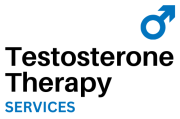Slow Down the Aging

For adults who have a growth hormone deficiency, injections of HGH can increase exercise capacity, improve muscle mass, and decrease body fat.
Growth hormone fuels childhood growth and helps maintain tissues and organs throughout life.
It’s produced by the pea-sized pituitary gland — located at the base of the brain. Beginning in middle age, however, the pituitary gland slowly reduces the amount of growth hormone it produces.
This natural slowdown has triggered an interest in using synthetic human growth hormone (HGH) as a way to stave off some of the changes linked to aging, such as decreased muscle and bone mass.
Do some adults need HGH treatment?
Adults who have a growth hormone deficiency — not the expected decline in growth hormone due to aging — might be prescribed synthetic HGH by their doctors.
In most people, growth hormone deficiency is caused by a benign tumor on the pituitary gland (pituitary adenoma) or by treatment of an adenoma with surgery or radiotherapy.
For adults who have a growth hormone deficiency, injections of HGH can:
- increase exercise capacity;
- increase bone density;
- increase muscle mass;
- decrease body fat.
HGH treatment is also approved to treat adults with AIDS- or HIV-related growth hormone deficiency that causes the irregular distribution of body fat.
Role of Endocrine System
Your body’s endocrine system secretes and controls the hormones that regulate many body processes including metabolism, use of nutrients, excretion, and reproduction. As you age, these systems become less efficient, leading to changes in our bodies. The hormone theory of aging states that these changes eventually cause the effects of aging.

Do hormones cause aging?
There is some evidence to support the hormone theory of aging. In one older study, researchers removed the pituitary gland of mice, which controls much of the endocrine system. The researchers then substituted the absence of the pituitary gland with supplementation of all of the hormones identified in mice.
It turns out that those without a pituitary gland lived longer than a control group of normal mice who did have a gland. This led researchers to conclude that the pituitary gland must also excrete another, unknown, hormone that negatively impacts aging.
Despite this, we all know that the quality of life matters even more than just longevity without quality, and young look, energy, sex drive, slim body, and cognitive function directly depend on hormones, and it would be great both to live longer and feel good through the whole life.
Research on a variety of organisms has shown that mutations that reduce insulin-like growth factor 1 (IGF-1) result in longer lives. But reducing IGF-1 has inconsistent effects on age-related diseases in humans, reducing the risks for some but increasing them for others.
Hormones for Anti-Aging
The concept that hormones or reduced production of hormones might cause aging has also led some to believe that they could be an anti-aging elixir. Growth hormone, which is produced by the pituitary gland, helps maintain tissues and organs throughout life. It’s also responsible for childhood growth. Synthetic human growth hormone (HGH) has been touted as a potential fountain of youth, with proponents hoping it can stave off the decline in tissue growth from aging.
While some adults have growth hormone deficiencies and require supplementation, this is rare. Research is indecisive on any other potential benefits.
Hormonal changes are an important part of aging. Whether they control the pace at which aging happens or are a consequence of other changes in the body is unknown.
You might be surprised to learn that there are tons of other theories of aging. We can only hope to live long enough to see which are correct.
Don’t forget to contact us if you’ve got any additional questions, and we’ll be happy to answer them for free.
GET A FREE CONSULTATION TODAY
FREQUENTLY ASKED QUESTIONS
Testosterone is one of the androgen hormones produced by the testes. It is the principle male hormone and is responsible for the development of the male sex characteristics. Testosterone is also the hormone of desire. Men produce testosterone primarily from the testes and also from the adrenal glands, while women produce smaller amounts of testosterone in their ovaries and adrenal glands Testosterone is important in maintaining good health in men. Testosterone has a well-documented role in cardiovascular health and bone density. Research shows that testosterone has been associated with lowering the risk of a heart attack and high blood pressure. Optimal testosterone levels positively affect muscle tone, blood pressure, cholesterol levels, the immune system, weight, moods, bone health, skin, libido, sperm production, sleep, as well as heart, liver and brain health.
Low libido Lack of initiative, assertiveness and drive Fatigue Decline in sense of well-being and self-confidence Depressed, irritable moods Indecisiveness Decreased mental sharpness Lessened stamina and endurance Loss of muscle mass, strength, and tone Increased body fat around the waist Decline in sexual ability Sleep apnea Gynecomastia (enlarged breasts)
Hypogonadism, low hormone production by the reproductive gland, occurs when the testicles do not produce sufficient levels of testosterone. Age-Related Decline As men age, they move from a state of optimal testosterone status to one of relative deficiency as their testosterone levels naturally decline. This stage of their life can be referred to as andropause, or male menopause. This downward slide begins in a man’s thirties and continues inexorably until the day he dies, although it is beginning to occur more commonly in younger men. As with any biological change that occurs gradually rather than abruptly, the age-related decline in testosterone often goes unnoticed until a critical point is reached. Suddenly out of the blue, a man in his forties or fifties may begin feeling depressed, irritable, or uninterested in the things that used to give him pleasure. He may notice that he has more aches and pains and fatigues more easily. He may develop a “spare tire” around his abdomen and find that his muscles have lost their strength or tone. Men may begin exercising, but find that even when they work out they show little improvement in muscle strength and stamina. They may go on a diet but have trouble losing weight. The lack of progress in their fitness regimen often leaves them feeling even more discouraged. He may lose interest in sex, have difficulty making decisions, or experience any number of other problems related to the decline in levels of testosterone.
In healthy men, testosterone levels between 350 ng/dL and 1000 ng/dL are referred to as “normal.” Normal physiology allows the brain and the testes to work together to keep testosterone in this range. The brain produces “signal” hormones that are responsible for stimulating testosterone production. These signals are periodically released, which in turn stimulates testosterone production. When levels of testosterone are in an acceptable range, the production of the signal hormones are slowed, which in turn allows the testosterone levels to decrease.
Hypogonadism, in a male, refers to a decrease in either testosterone production, sperm production, or both. The medical professionals at Low T Center address the testosterone aspect of this condition. Decreased sperm production requires a careful, thorough evaluation by a fellowship-trained specialist.
Benefits of testosterone replacement therapy vary based upon the pre-therapy symptoms and other factors, but they can include the following: increased energy; decreased irritability and depression; improved muscle mass and strength; improved sexual desire; improved visuospatial cognitive function and verbal memory; higher motivation; decreased body fat (optimal results received through accompaniment of a diligent diet and exercise regimen); possible improvement in erectile function; thicker skin.
